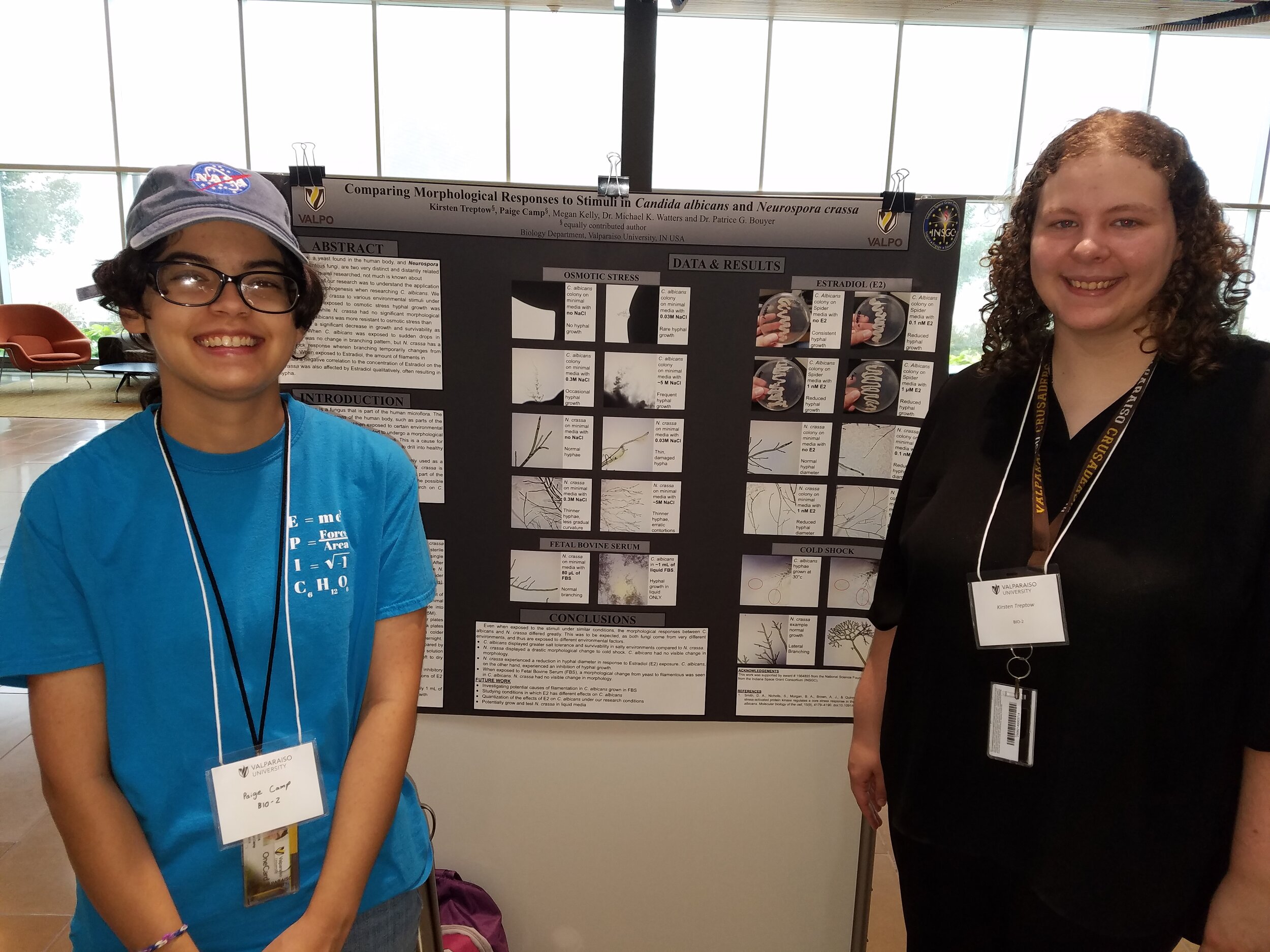EPIC: Increased Success of Commuter Students through STEM Research Experiences and Campus Engagement
By Jana Talley, co-editor of DUE Point, Jackson State University
Student Poster Session
The Establishing Practices for Integrating Commuters (EPIC) project is designed to address the unique challenges that commuter students face. Many of them have off-campus jobs that prevent engagement in academic programs that support scholarly growth. Living away from campus also hinders the development of collaborative relationships with peers and professors that cultivate useful networks beyond the classroom. To combat these obstacles, the EPIC participants are provided with substantial scholarships, research experiences, and various opportunities for integrating into the wider campus community.
Question 1: NSF grants are competitive. What do you think sets your proposal apart from others?
The EPIC project focuses on increasing the recruitment and retention of commuter students, a demographic that is often overlooked. Moreover, the commuter-focus is especially relevant now that the coronavirus pandemic has required colleges to identify new ways to engage students outside of traditional face-to-face instruction.
Another notable aspect of the EPIC project is its aim to get students, specifically commuters, involved in undergraduate research as early as their freshman year. While involving students in research activities is a well-known practice for enhancing the effectiveness of undergraduate programs, EPIC’s emphasis on continual student research experiences is relatively unique, especially at a mid-sized liberal arts university.
Question 2: Where did you get the idea for this project?
Built upon Valparaiso University’s strong infrastructure for involving undergraduates in research activities and existing processes for recruiting and retaining students, the EPIC project targets commuter STEM majors interested in research and those planning for graduate school. It brings together key features of successful retention programs for cohorts of STEM majors. Participation in an EPIC cohort provides students with a scholarship, early exposure to research activities, monthly social gatherings, peer research collaborations, and mentoring. The EPIC team also supports students by facilitating relationships with professional organizations, identifying suitable academic programs, and aiding in the pursuit of job opportunities. These networks further expand the STEM communities that EPIC students (and all Valparaiso students) are able to access.
Question 3: How will students and your institution be better off as a result of your project?
While EPIC cohorts include residential students, the project is bringing attention to an underserved and understudied student population by targeting commuter students. In this effort all students are prepared for research-oriented careers. As evidenced by the experiences of previous EPIC participants, the project ushers students into research environments and, ultimately, their desired career fields. These opportunities are highly impactful for first generation, female, and/or minority students in STEM.
These interventions have led to higher STEM retention rates among EPIC students compared to Valparaiso’s overall student population, and especially compared to the institution’s commuter student population. As evidenced by responses to campus-wide surveys, EPIC students have much more positive views about research compared to other Valparaiso students.
Question 4: What have you learned about managing the various aspects of your project?
The EPIC team has learned to be hands-on in the recruitment process. Through targeted advertising, students are made aware of the opportunities available through the EPIC program. Otherwise, participant applications drop significantly. Therefore, the team maintains close collaborations with campus offices, such as admissions, marketing, and student life.
Additionally, it has become evident that field trips to industry partners must be carefully planned. Because EPIC caters to a variety of STEM majors, it was difficult to find companies that were of interest to, for example, both chemistry majors and statistics majors. Moreover, the trips need to be facilitated by individuals in the field who are trained to engage college students.
Question 5: Tell us about your project team.
The EPIC team originally consisted of Kristi Bugaski, Mindy Capaldi, Bonnie Dahlke-Goebbert, Karl Schmitt, Jon Schoer, and Mike Watters. Together they represent the office of student life as well as a variety of STEM fields (mathematics, statistics, biology, data science, and chemistry). Though one of the team members, Jon Schoer, has passed away and another, Karl Schmitt, has taken a position at a nearby institution; the team is still going strong! As a representative of the office of student life, Bonnie’s leadership has been invaluable. She is in charge of first-year student orientation, manages commuter programs, and uses her networks across campus to keep the project team plugged into the happenings of Valparaiso students in general and EPIC students in particular.
Learn more about NSF DUE (#1564855)
Full Project Name: EPIC: Establishing Practices for Integrating Commuter Students
Abstract Link: https://www.nsf.gov/awardsearch/showAward?AWD_ID=1564855&HistoricalAwards=false
Project Contact: Mindy Capaldi (Co-Principal Investigator); Mindy.Capaldi@valpo.edu; https://www.valpo.edu/epic/
*Responses in this blog were edited for length and clarity.

